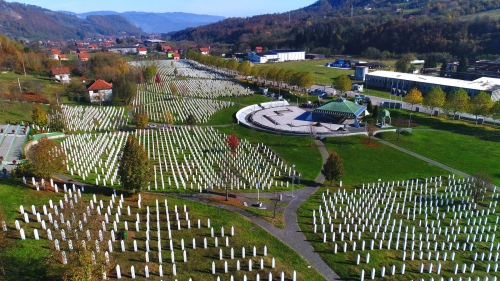Dagestan conflict escalates
>
Islamist insurgents reentered Dagestan on Sunday and occupied several villages in the northwestern Novolakskiy district. The move provoked on Tuesday an urgent meeting of the Russian Security Council as evidence of what appears to be an escalating conflict in the Caucasus.
Russian security forces claimed to have quelled a similar rebellion last month, and insurgents were said to have retreated back into Chechnya from whence they came. At Tuesday's meeting, Russian President Boris Yeltsin berated the Russian military for negligence in allowing a second incursion, according to the Associated Press (AP) on September 7. Yeltsin was also reportedly frustrated by a bomb attack on Saturday on army barracks in Dagestan that killed 61 people.
Yeltsin called the bombing a "terrorist act," as quoted by the BBC on September 7, and Russian sources have continued to downplay the level of conflict in Dagestan. According to the BBC on September 5, Russian military sources put the number of insurgents at 300, while Dagestani sources said 2,000 militants had crossed into Dagestan, with another 5,000 massed at the border with Chechnya waiting to invade.
In the two week conflict last month, Russian sources consistently underestimated the number of Russian soldiers killed and put the number of insurgents at a few hundred, a number exceeded by what had to have been exaggerated reports of rebel casualties. According to a variety of sources, the number of insurgents in the first conflict was closer to 1,000. If the reports from Dagestan as to the number of insurgents this time can be believed, the latest incursion represents, by numbers alone, a significant escalation in the conflict.
The continued presence of the insurgents in Dagestan, who are trying to establish an independent Islamic state, presents serious problems to the Russian authorities in Moscow. Dagestan, with its oil reserves on the Caspian Sea, represents significant economic interests to Russia. Perceived weakness in handling the Dagestani issue would also provide fodder for opposition elements within Russia.
And finally, Dagestan's geographical location as a major outlet to the Caspian Sea pricks Russian nationalist hysteria about rights of territory and such issues relating to international pride. According to the BBC on September 7, Yeltsin said that Islamic militancy in Dagestan and elsewhere must be contained as it threatened Russia's territorial integrity.
But through its hysterical reaction to the conflict in Dagestan, Russia is in danger of provoking even greater hostility. Russian warplanes recently conducted a bombing raid on supposed rebel bases in the Nozhai-Yurt region of eastern Chechnya. According to the BBC on September 6, Chechen deputy Prime Minister Kazbek Makhashev has said 43 people, most of them civilians including children, died in the five villages bombed.
Chechnya celebrated its eighth anniversary of independence on Monday but many Chechens are still fearful of Russian invasion. Russian Prime Minister Alexander Putin responded to the first incursion of Chechen militants into Dagestan by threatening Chechnya. According to the Washington Post on August 14, Putin said, "Chechnya is Russian territory, and wherever fighters are, strikes will be made against them.
BBC regional analyst Tom de Waal, writing on September 6, said that tensions between Chechnya and Russia are at the highest point since the end of the Chechen war for independence in 1996. According to Waal, "Most of the Chechen population does not actively support the rebels, but they become very angry if attacked by the Russians." Such resentment could force Chechnya's moderate leader, Aslan Maskhadov - who as so far condemned both sides, into calling for Chechen defense against Russian aggression. "Anything else would be tantamount to political suicide for the leader of self-proclaimed independent Chechnya," writes Waal.
While the insurgents in Dagestan may perhaps eventually be defeated by Russian troops, Russia cannot afford another war with Chechnya. In 1995 alone, the Chechen war cost the Russian government $5 billion, or 2.5 percent of Russia's GNP. The war additionally served to seriously undermine Russia's experiment with democracy, according to a 1996 article entitled "Russian Politics after Chechnya," by Michael McFaul of the Carnagie Endowment's Moscow Center.
There is no doubt the most recent insurgency in Dagestan represents an escalation to the conflict in the Caucasus. Russia, for its part, has responded to this escalation by hardening its resolve to dig out the rebels. But while the insurgents in Dagestan have little to lose by raising the level of the conflict, the Russian government can ill afford to risk a conflict prolonged and intensified by what could be an ever broadening base of opposition.

















